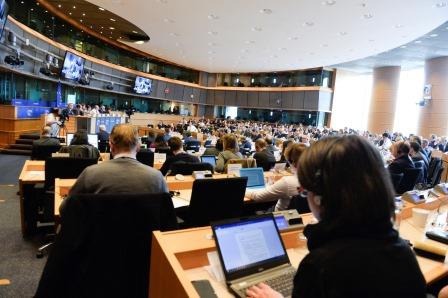The European Parliament’s budgetary control committee quizzed last week Commissioner Gunther Oettinger about the procedure for the controversial appointment of Martin Selmayr to the Commission’s new secretary-general. The public hearing ended with more questions and a critical draft motion for a resolution. Ahead of the hearing, the Commission had replied in writing to a catalogue of over-lapping questions prepared by the political party groups in the Parliament. Oettinger repeated the Commission’s position that the appointment had followed all relevant rules.
“Every institution has the duty and the right to choose the best candidate for the job and institutions have to respect one another in these decisions and appointments without any influence taken from outside,” he said and mentioned his own legal background.
However, the regularity of the procedure was put in doubt by the Parliament’s Legal Service which explained that the conditions, laid down in European case law, for a transfer of an official to an unpublished post were not met in Selmayr’s case.
“It would have been nice if the post had been published,” commented MEP Ingeborg Grässle (EPP), chairwoman of the Committee. In a draft motion for a resolution, the Committee wrote that “this tradition of non-publication has reached its limits insofar as it does not correspond anymore to modern standards of transparency.”
Oettinger did not respond to the legal challenge. Pressed by the Committee if not the appointment procedure contradicted the spirit of the Staff Regulations, he replied that the letter and spirit of the law were more or less identical. If the spirit is something beyond the text, “we are in the area of imagination,” he said.
The draft motion summarizes the factual elements of the procedure and sheds some light on Selmayr’s career in the Commission. It regrets that the procedure “was conducted in a manner which aroused widespread irritation and disapproval in public opinion” and notes that it “constitutes a reputational risk for all EU institutions.”
It also states that the two-steps nomination of Selmayr (first to deputy secretary general and immediately afterwards to secretary-general) constitutes “a coup-like action which stretched and possibly even overstretched the limits of the law.”
The motion ends with some lessons learned for future appointments and it remains to be seen if the final version will include any demands for cancelling the appointment or for someone to resign. The Committee has already filed follow-up questions to the Commission. All this will feed into a resolution to be voted on by the whole Parliament on April 19.
The Brussels Times

